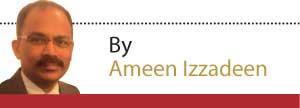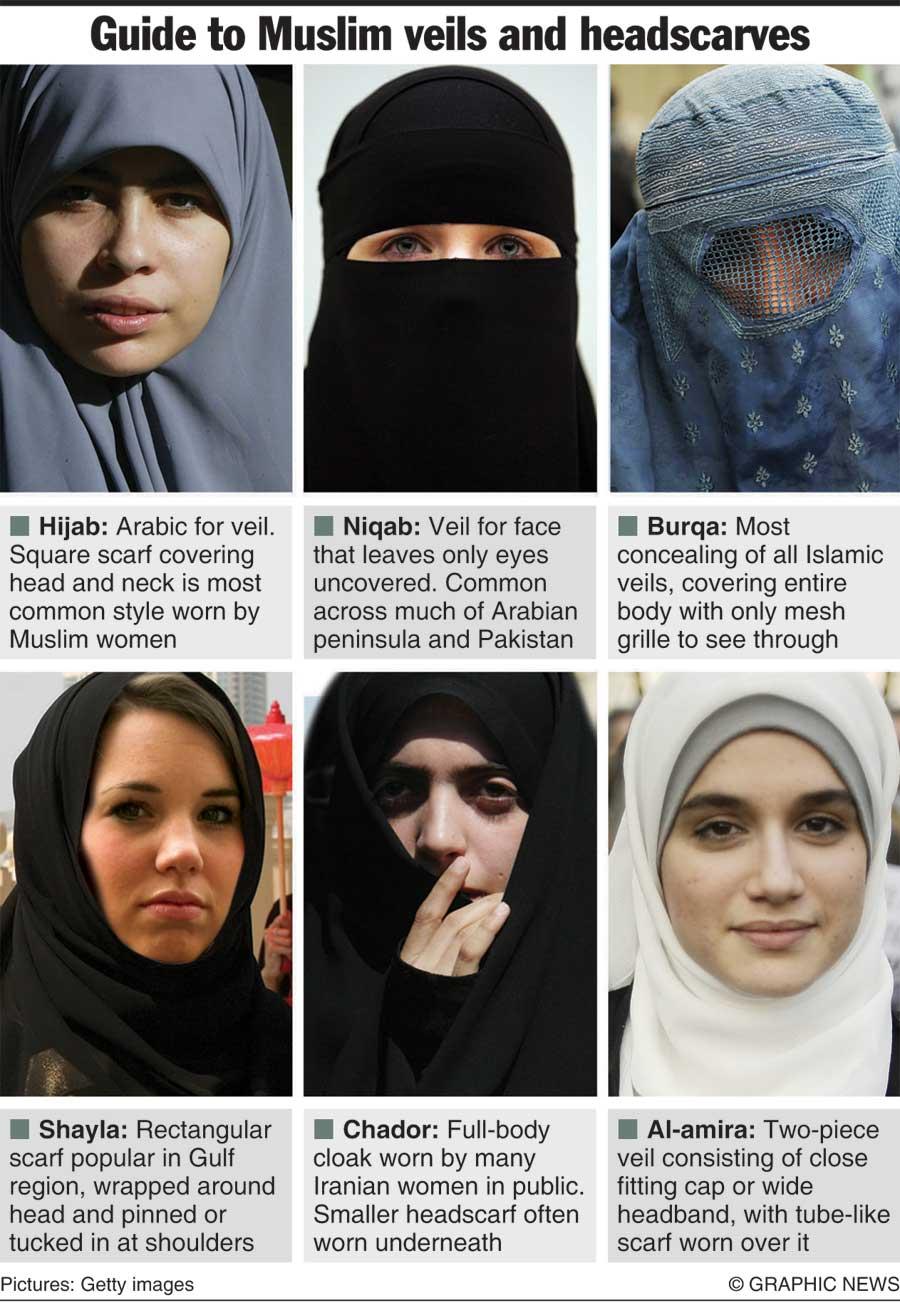19 Mar 2021 - {{hitsCtrl.values.hits}}
A few years ago, on a Turkish beach exclusively for women, a bikini-clad woman offered her prayers. The video clip of the woman going through the postures of the Muslim prayer went viral and created a major debate among the Muslims. Some censured her for not adhering to the dress code for prayers, but others said what mattered was her piety and not the dress.
clip of the woman going through the postures of the Muslim prayer went viral and created a major debate among the Muslims. Some censured her for not adhering to the dress code for prayers, but others said what mattered was her piety and not the dress.
Following the release of the Easter Sunday terror attack commission report, Sri Lanka is mulling whether to ban burqa – the Muslim dress that covers a female body from head to toe – and niqab, which only shows the eyes of the wearer, but the issue needs to be looked at from human rights, security and spiritual angles to come to a right decision.
If at the one end of the spectrum is public nudity, burqa will be at the other end. As civilized people, we denounce public nudity as indecent. But neither do we depict burqa as the highest form of modesty. Both extremes need to be shunned.
We are born naked but soon we are clothed by our parents or caregivers to protect ourselves from the elements and also as an adornment. As we grow up, we wear clothes also to cover our private parts. Scriptures tell us that Adam and Eve used fig leaves to cover their nudity after they disobeyed God and discovered their shame.
But there are tribes who wear no clothes. They are not ashamed of their nakedness. But such indigenous people live in isolation and remain deprived of the benefits of the civilization-building process.
The general understanding is that as human beings, we wear clothes to protect ourselves from the elements, as an adornment and to cover parts of our bodies which are sexually attractive to the opposite sex, depending on one’s threshold of modesty. The consensus is that we should be clothed in public. As to how much to cover is a matter that is diversely defined, depending on culture, social norms and individuality. In South Asia, saree is regarded as a form of modest clothing for women as it covers much of their torsos and the legs, but in the Middle East, saree is seen as not-so-modest as it exposes the midriff.
Just as the choice of clothes is our right, one may argue that the freedom to be nude or the freedom to be scantily clad -- depending on one’s interpretation of modesty -- is also a human right.
However, even in liberal societies, where shortness is promoted by men as women empowerment after the miniskirt revolution of the 1960s, the freedom to be nude is curtailed. In those countries, although courts have recognised nudity as freedom of expression, they also recognise that nudity should be regulated through legislation as it causes public disorder. The consensus is that nudity should be disallowed unless it is the norm.
Whether burqa, niqab or hijab – the scarf that covers the head and the chest -- is worn due to choice or coercion, human rights jurists have defended a person’s right to wear them. This was confirmed in the 2018 ruling of the United Nations Human Rights Committee. The Committee ruled that France had violated the human rights of two women by fining them for wearing niqab.
It found that the French niqab ban disproportionately harmed the petitioners’ right to manifest their religious beliefs, and that France had not adequately explained why it was necessary to prohibit this clothing. The Committee said it was not convinced by France’s claim that the ban was necessary and proportionate from a security standpoint or for attaining the goal of “living together” in society.
The Committee acknowledged that States could require that individuals show their faces in specific circumstances for identification purposes, but considered that a general niqab ban was too sweeping for this purpose.
The Committee also concluded that the ban, rather than protecting fully veiled women, could have the opposite effect of confining them to their homes, impeding their access to public services and marginalising them.
Recently, in Switzerland, people voted in a referendum in favour of a niqab ban, though the Government said it was not for the ban but would prefer a mechanism whereby the wearers would be required to reveal their facial identity on request for security purposes.
The ban on burqa and niqab in many countries is justified on the basis of public security, with these clothing types being seen as symbols of extremism and oppression or enslavement of women rather than expression of spirituality. On security grounds, even several Muslim countries have banned burqa and niqab. They include Algeria, Tunisia and Morocco. In Muslim Uzbekistan and Tajikistan, even hijab is banned. In secular Turkey, hijab had been banned in public institutions until Islamic-leaning Prime Minister Recep Tayyib Erdogan lifted the restriction in 2013.
While burqa and niqab have become serious human rights and security topics, there is a perennial debate among Muslims on whether Islam really pushes for burqa and niqab. Islam accords prime importance to modesty and bashfulness -- known as Haya in Arabic – and it is part of faith.
Although from a security perspective, the full covering of the female body is being seen as a threat, the spiritually inclined in all major religions may say the more we make ourselves sexually less attractive to others with our clothing and behaviour the more righteous will be our conduct. Look at the nuns and the Bhikkunis.
Interpreting the Quran and the prophet’s tradition, some scholars, especially those of the hardline Salafi and Wahhabi order, say rather unconvincingly that niqab or burqa is wajib or a must. They believe the entire body of a woman, including her shape, is her private part and therefore should be covered, lest she becomes an object of lust to be ogled by men.
But those who say niqab or burqa is not compulsory also put forward Quranic verses and prophet’s sayings. They insist a woman needs to cover her head and the bosom, but her face and hands could be exposed. Some progressive scholars point out that the problem is not with women but with men, for the Quranic command to ‘lower thy gaze’ or be chaste in thoughts and action is addressed first to men and then to women. Did not Jesus Christ ask men not to look at a woman lustfully, for if they do they have already committed adultery with her in their hearts?
There is much male chauvinism in the pro-niqab/burqa camp, with male scholars trying to impose their hardline interpretations on the females whose views are rarely sought or respected.
Amidst views and counterviews between the human rights and security schools of thought, the golden means, perhaps, is to impose a temporary restriction based on the security threat which needs to be assessed from time to time with a view to lifting the ban.
Ironically, at a time when we struggle to cope with the COVID-19 pandemic, the facemasks we wear to protect ourselves from the virus have made us -- women and men -- niqabis or niqab wearers. Hence the move to ban niqab may appear ridiculous.

29 Nov 2024 4 hours ago
29 Nov 2024 6 hours ago
29 Nov 2024 7 hours ago
29 Nov 2024 7 hours ago
29 Nov 2024 8 hours ago